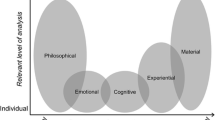Abstract
Communicative rationality offers a new paradigm for transportation planning. Drawing on the literature and lessons from transportation planning practice, this paper describes the characteristics of a “communicative” form of transportation planning and compares them with conventional practices. A communicative rationality paradigm would place language and discourse at the core of transportation planning. The paper argues that it would lead to greater attention to desired transportation ends (goals), better integration of means and ends, new forms of participation and learning, and enhanced deliberative capacity. The paper explains the implications of this paradigm for the role of the transportation planner, the purpose of planning, the planning process, communicative practices, problem framing, and the nature of planning analysis. The paper concludes with an assessment of communicative rationality's ability to promote more effective transportation planning. It seeks to create a dialogue that will support the investigation of new transportation planning processes.
Similar content being viewed by others
References
Altschuler A (1979) The Urban Transportation System: Politics and Policy Innovation. Cambridge, MA: The MIT Press.
Anson G &; Willis K (1993) Planning with vision: The development of traffic strategies for Melbourne. Transportation20: 59-75.
Alexander Ernest (2000) Rationality revisited: Planning paradigms in a post-postmodernist perspective. Journal of Planning Education and Research19: 242-256.
Argyris C &; Schon D (1974) Theory in Practice: Increasing Professional Effectiveness. San Francisco, CA: Jossey-Bass Publishing Company.
Dickey J (1983) Metropolitan Transportation Planning. New York: Hemisphere Publishing Corporation.
Dryzek J (1993) Policy Analysis and Planning: From Science to Argument. In: Fisher F &; Forester J (eds) The Argumentative Turn in Policy Analysis and Planning(pp 211-241). Durham, NC: Duke University Press.
Flyvbjerg B (1998) Rationality and Power: Democracy in Practice. Chicago: University of Chicago Press.
Fisher F &; Forester J (eds) The Argumentative Turn in Policy Analysis and Planning. Durham, NC: Duke University Press.
Forester J (1999) The Deliberative Practitioner. Cambridge, MA: The MIT Press.
Forester J (1993) Critical Theory, Public Policy and Planning Practice. Albany, NY: State University of New York Press.
Forester J (1989) Planning the Face of Power. Berkeley: University of California Press.
Friedmann J (1987) Planning in the Public Domain: From Knowledge to Action. Princeton, NJ: Princeton University Press.
Guhathakurta S (1999) Urban modeling and contemporary planning theory: Is there a common ground? Journal of Planning Education and Research18: 281-292.
Habermas J (1979) Communications and the Evolution of Society. Translated by McCarthy T. Boston: Beacon Press.
Habermas J (1984) The Theory of Communicative Action: Volume 1. Reason and the Rationalization of Society. Boston: Beacon Press.
Harvey G (1985) Research directions in travel demand analysis. Transportation Research A19A: 455-459.
Healey P (1993) Planning through debate: The communicative turn in planning theory. In: Fisher F &; Forester J (eds) The Argumentative Turn in Policy Analysis and Planning(pp 121-148). Durham, NC: Duke University Press.
Innes J (1995) Planning theory's emerging paradigm: Communicative action and interactive practice. Journal of Planning Education and Research14: 183-189.
Kuhn T (1970) The Structure of Scientific Revolutions, 2nd edition. Chicago: University of Chicago Press.
Meyer M &; Miller E (1984) Urban Transportation Planning: A Decision-Oriented Approach. New York: McGraw-Hill Book Company.
Milroy BM (1991) Into postmodern weightlessness. Journal of Planning Education and Research10: 181-187.
Outhwaite W (1998) Habermas: A Critical Introduction. Stanford, CA: Stanford University Press.
Pas E (1995) The urban transportation planning process. In: Hanson S (ed) The Geography of Urban Transportation, 2nd edition. New York: The Guilford Press.
Richmond J (1998) The mythical conception of rail transit in Los Angeles. Journal of Architecture and Planning Research15: 294-320.
Shunk G (1992) Urban transportation systems. In: Edwards J Jr (ed) Transportation Planning Handbook. New Jersey: Prentice Hall.
Southern California Association of Governments (1998) Communitylink 21: 1998 Regional Transportation Plan. Los Angeles, CA: Southern California Association of Governments.
Talvitie A (1997) Things planners believe in, and things they deny. Transportation 24: 1-31.
Taylor B (1995) Program performance versus system performance: An explanation for the ineffectiveness of performance-based transit subsidy programs. Transportation Research Record: Public Transit1496: 43-51.
Throgmorton JA (1993) Survey research as rhetorical trope: Electric power planning arguments in Chicago. In: Fisher F &; Forester J (eds) The Argumentative Turn in Policy Analysis and Planning(pp 78-96). Durham, NC: Duke University Press.
Wachs M (1985) Planning, organizations and decision-making: A research agenda. Transportation Research A19A: 521-531.
Wachs M (1985) When planners lie with numbers. Journal of the American Planning Association55: 476-479.
Wachs M (1995) The political context of transportation policy. In: Hanson S (ed) The Geography of Urban Transportation, 2nd edition. New York: The Guilford Press.
Author information
Authors and Affiliations
Rights and permissions
About this article
Cite this article
Willson, R. Assessing communicative rationality as a transportation planning paradigm. Transportation 28, 1–31 (2001). https://doi.org/10.1023/A:1005247430522
Issue Date:
DOI: https://doi.org/10.1023/A:1005247430522




